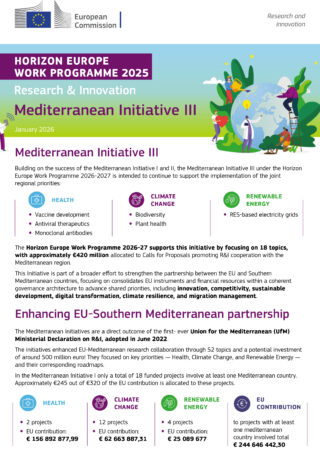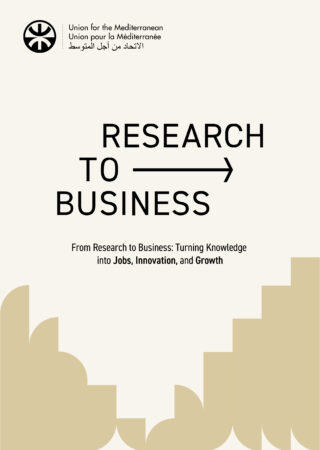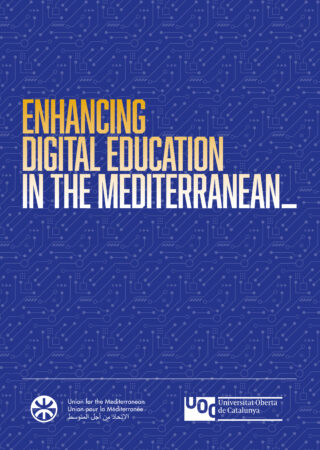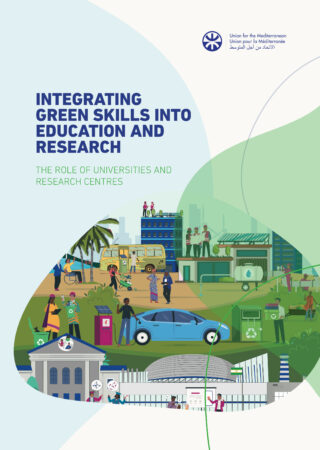
Take Away Ideas Report – Science and Innovation Diplomacy in the Mediterranean
In the Euro-Mediterranean region, cultures and science met and mingled for millennia, creating spaces for innovative and inclusive solutions to common challenges. This makes science diplomacy a promising tool for cooperation between Southern Mediterranean countries and Europe, and a field that the Union for the Mediterranean (UfM) strongly supports through its work on research and innovation, higher education, blue and circular economy, climate change, food systems, and water. In this framework, the UfM has an indispensable role as a privileged dialogue forum for its 42 Member States, recognised recently by a Joint Communication of the EU for “A new Agenda for the Mediterranean”. It is in this spirit that UfM supports training, discussions, and initiatives about science diplomacy in the Mediterranean, in the belief that strengthening EuroMediterranean cooperation in research and innovation is a way forward for fully tapping into the potential of a prosperous Mediterranean. The 1995 Barcelona Declaration stated that “science and technology have a significant influence on socioeconomic development” of the Euro-Mediterranean region. In 2017, UfM Ministers of Research held a EuroMed Conference on Research and Innovation (R&I) in Valletta, and in 2021 the UfM Regional Platform on Research and Innovation approved a new research agenda on climate change, health, and renewable energy. A UfM Ministerial Conference in Research and Innovation is currently scheduled for 2022. In December 2020 and October 2021, the UfM, in partnership with the Horizon 2020 project S4D4C (Using Science Diplomacy for Addressing Global Challenges) and CREAF, organized two virtual workshops to analyze the state of science and innovation diplomacy in the Euro-Mediterranean and increase awareness, capacities, and dialogue among different stakeholders, including national governments, multilateral institutions, industry, research organizations, and civil society. The conclusions of these events have inspired the preparation of this report, which offers a synthetic view on the main outcomes of past experiences on science diplomacy within the UfM framework and many lessons for the way forward.
This report has been developed for the UfM Secretariat, and has been supervised by Giuseppe Provenzano, Higher Education and Research.
UfM project coordinator: Itaf Ben Abdallah, Giuseppe Provenzano
CREAF project coordinator: Dr. Alicia Perez-Porro
Lead author: Dr. Marga Gual Soler
December 2021




